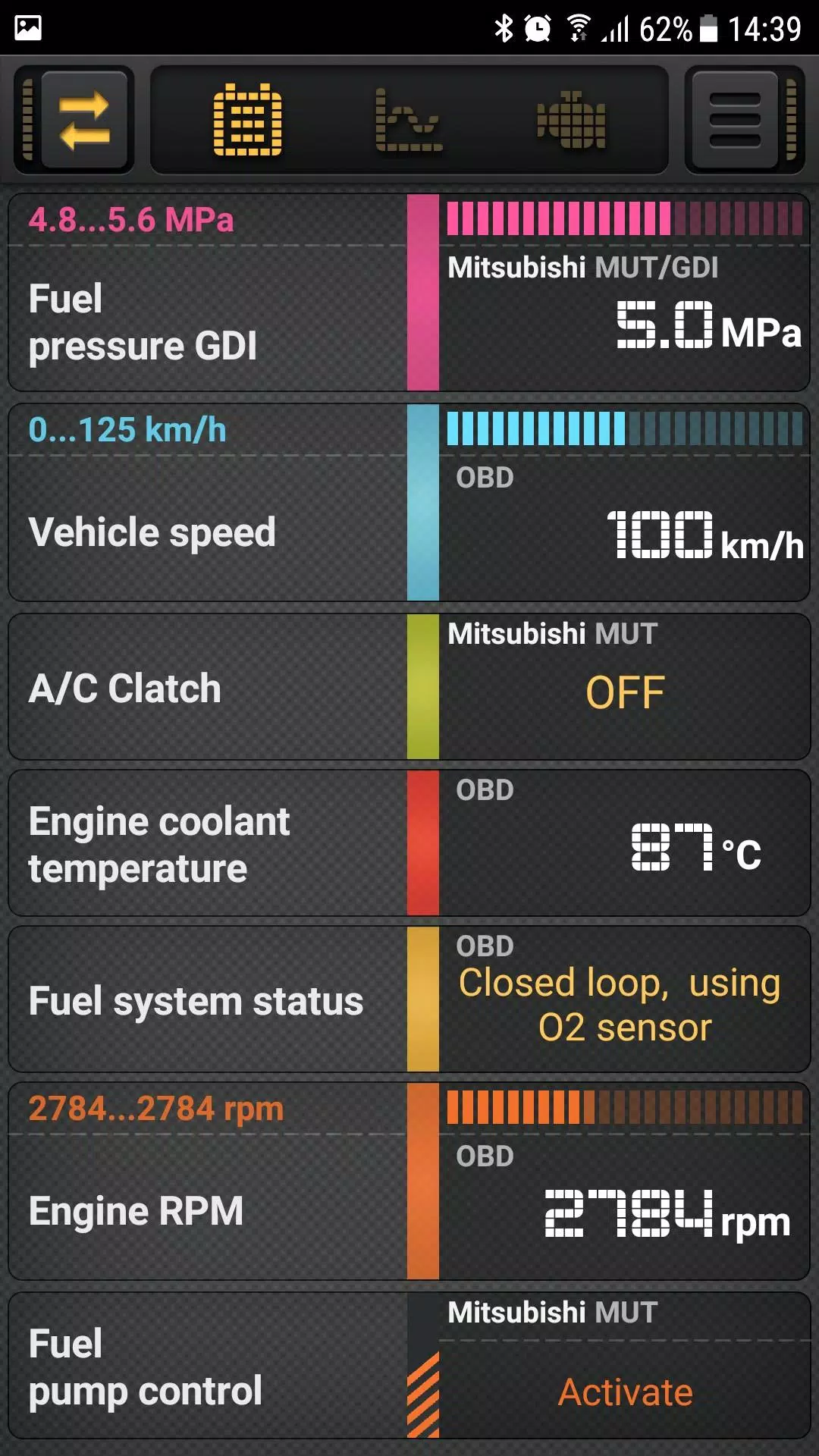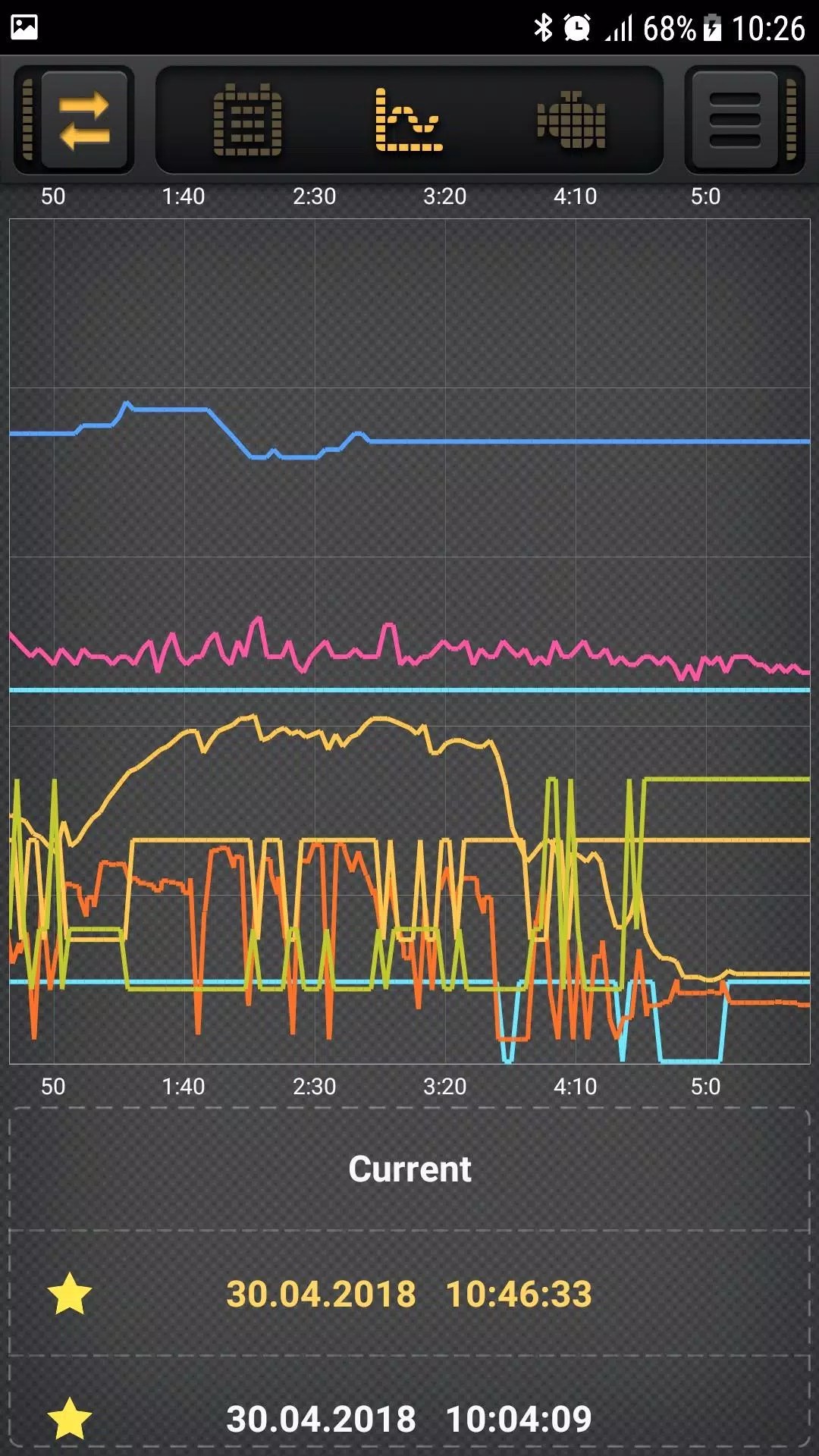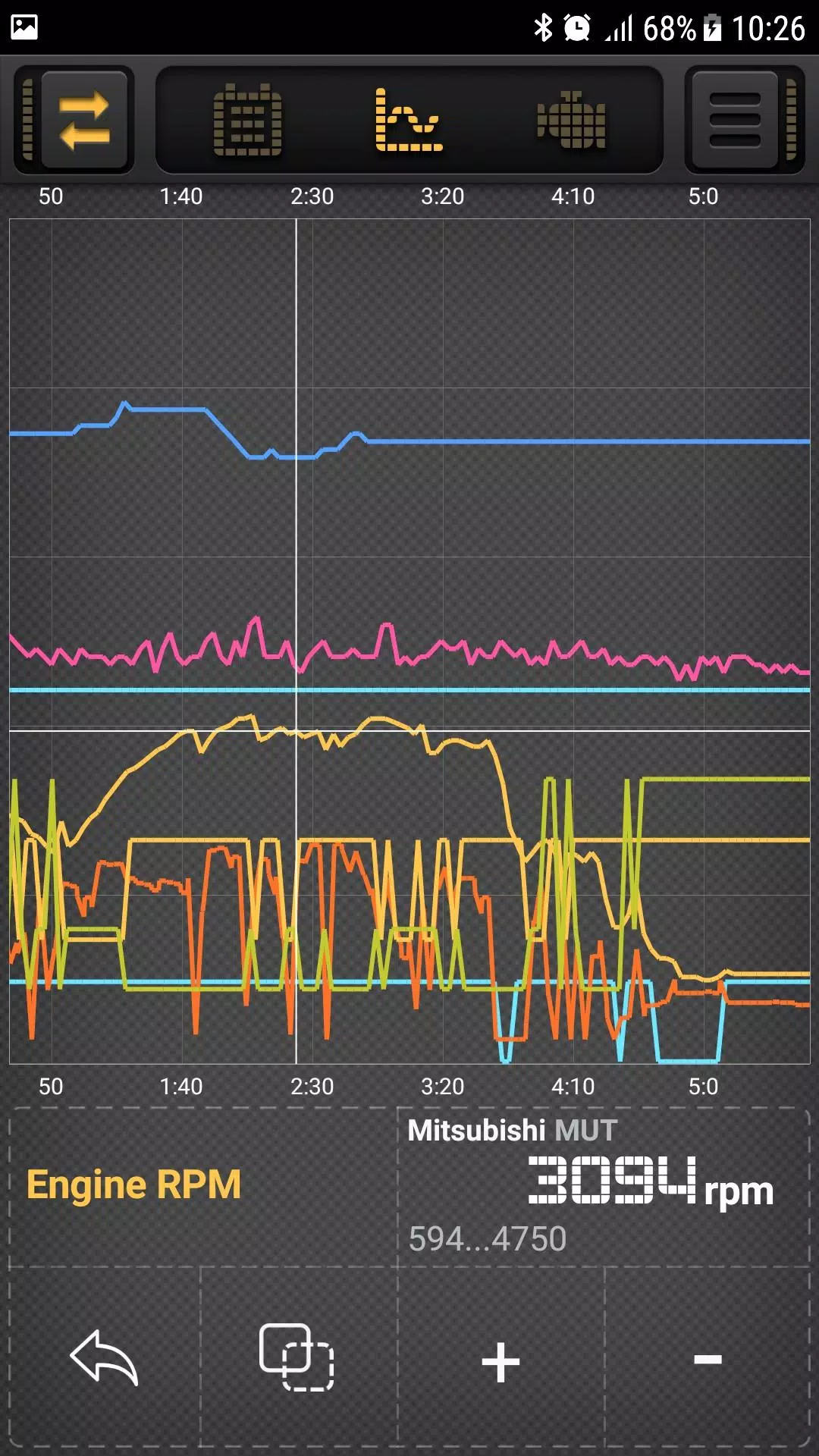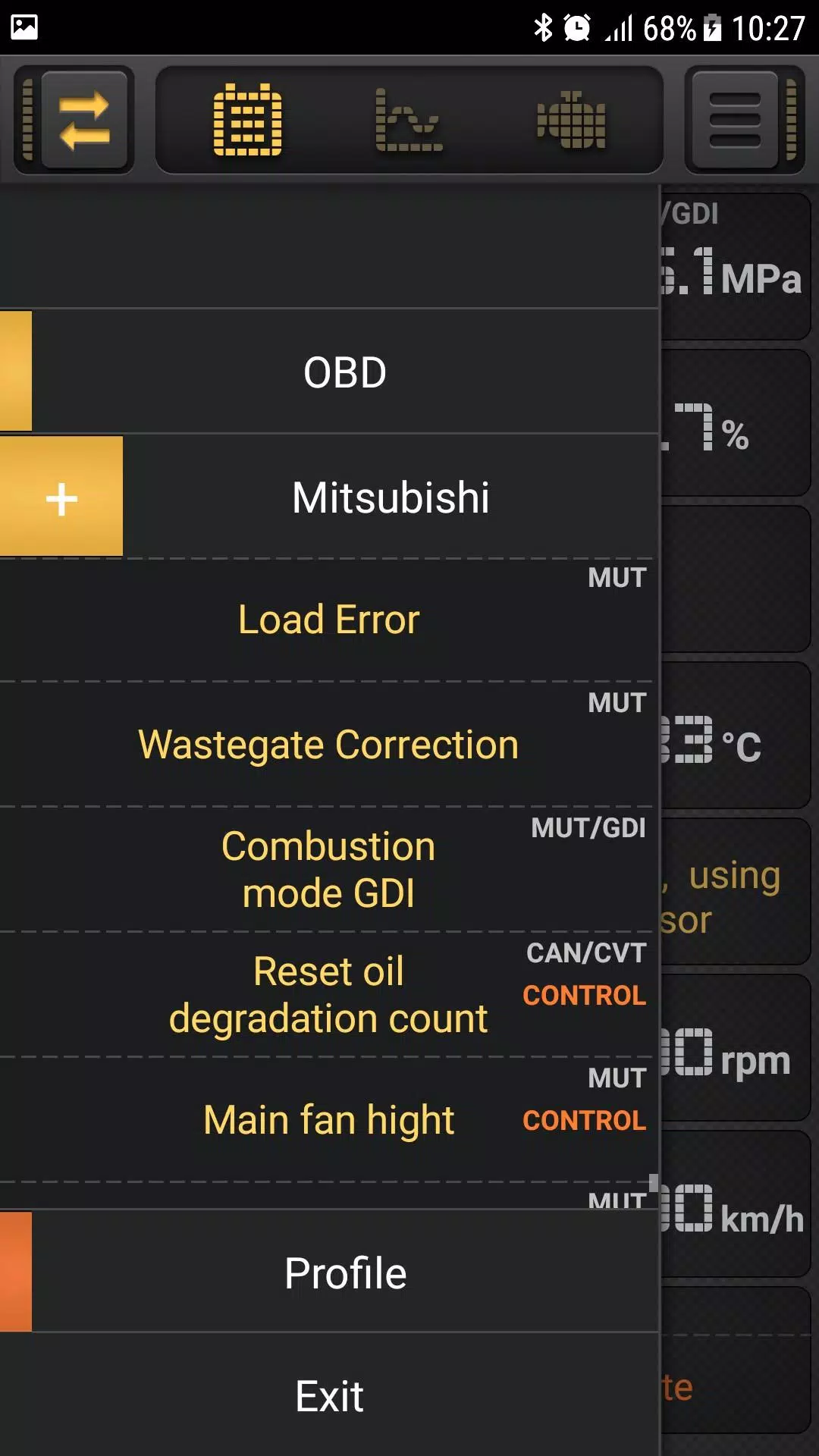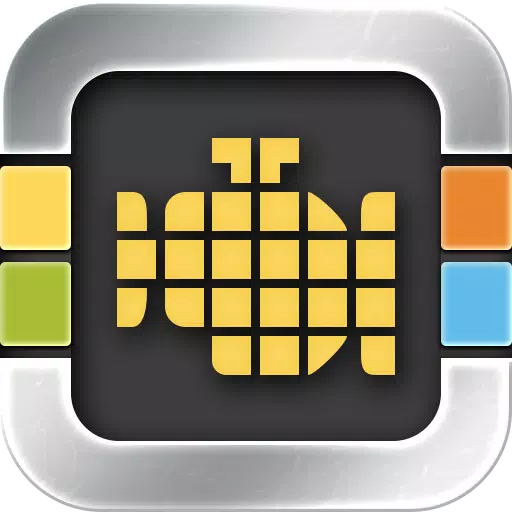
OBD2 Engine ECU Diagnostics Tool with ELM327 Adapter
Our advanced car diagnostics application, designed for use with the Wi-Fi/Bluetooth ELM327 OBDII adapter, provides comprehensive insights into your vehicle's performance. Whether you're monitoring real-time data, saving and reviewing graphics, or managing engine fault codes and DTC trouble codes, this tool offers unparalleled functionality for vehicle diagnostics.
Key Features:
- Real-Time Data Display: View live data from various electronic vehicle blocks, ensuring you're always informed about your car's health.
- Graphical Data Visualization: Not only can you see real-time data, but you can also save these graphics for future reference and analysis.
- Fault Code Management: Easily identify, display, and reset engine fault codes/DTC trouble codes to maintain optimal vehicle performance.
- Customizable Alarms: Set minimum and maximum values for each sensor/PID to trigger an alarm, keeping you alert to potential issues.
- Broad Adapter Compatibility: Compatible with both Bluetooth ELM327 and Wi-Fi ELM327 OBD adapters. For the best experience, use adapters version 1.5, as versions 2.1 have received user complaints about accuracy.
Important Note:
The ELM327 chip functions exclusively with vehicles equipped with OBD2 support:
- USA: Cars manufactured since 1996
- Europe: Gasoline cars since 2001, Diesel cars since 2003
- Japan: Cars manufactured since approximately 2000
Extended Support for Various Car Brands:
In addition to standard OBDII parameters, our tool supports specialized parameters for a wide range of car brands, including but not limited to:
- BMW - (DIESEL, E91+AT)
- BYD - (MT20U, ABS)
- Chery - (MT20U, MT20U2, ActecoME797)
- Chrysler/Dodge - (DIESEL, AT)
- Citroen - (C4, C5, Sagem2000, CAN/AT6, EDC16C3, MEV17.4.2)
- Daewoo - (SiriusD42)
- Fiat - (IAW49F, IAW5SF)
- Ford - (ECU, PWM/AT, PWM/ABS, CAN/DIESEL, CAN/AT, CAN/TPMS, CAN/ABS)
- Geely - (MT20U, MT20U2, M797)
- GM/Chevrolet/Pontiac - (ECU, AT, ABS, SiriusD42)
- GreatWall - (MT20U2, EOBD, CAN/4D20)
- Honda - (Fit, Accord, CRV/DIESEL, Insight)
- Jeep - (ECU, DIESEL, AT, TPMS)
- KIA, Hyundai - Approximately 15 PIDs for each model (ATF Temperature, Knock detected, etc.)
- Land Rover - (RANGE/3.6L, DISC4/3.0L, DISC3/TD6, FL2/TD4)
- Lifan - (MT20U, MT20U2, ActecoME797, ME1788, ABS)
- Mazda - (ECU, AT, ABS, CAN/TPMS, CAN/SWA)
- Mercedes - (W203/CDI, W169/CVT, W168)
- Mitsubishi - (CAN/ECU, CAN/CVT, CAN/SS4II, CAN/AWC, MUT/OBD, MUT/GDI)
- Note: Mitsubishi vehicles before ~2000 do not support OBD and cannot work with ELM327.
- Nissan - (CAN/ECU, CAN/CVT, CAN/AWD, CAN/METER, CONSULT2)
- Opel - (ECU, AT, ABS, X18XE, Z16XE, Y17DT, CDTI1.6L, CDTI1.3L)
- Peugeot - (MEV17.4.2, EDC16C3, ME744, AL4/CAN, AL4/KWP)
- Renault - (CAN/ECU, CAN/DIESEL, KWP/DIESEL, Sagem2000, KWP/EMS3132)
- Skoda - (CAN UDS TSI/TFSI)
- SsangYong - (KWP/ECU, KWP/AT5, D20DT, CAN/D20DTF, CAN/DSI6)
- Subaru - (ECU, ECU/DIESEL, SSM2, SSM2/DIESEL, SSM2/AT, KWP/ABS)
- Suzuki - (CAN/ECU, KWP/ECU)
- Toyota - (CAN/ECU, KWP/ECU, Prius10, Prius20, Prius30/Alpha, Prius30/AC)
- VAG - (TDI/2.5L, CAN UDS TSI/TFSI)
- Volvo - (D5/P3)
- VAZ - (Yanvar 7.2, Itelma VS5.1 R83, Itelma M73, Itelma M74, KWP/CAN, AT/JATCO, AMT/ZF, Vesta/Largus K4M, H4M)
- GAZ - (MIKAS10.3/11.3, MIKAS11/E2)
- ZAZ - (MIKAS10.3/11.3, MR140)
- UAZ - (MIKAS10.3/11.3, MIKAS11/E2, M86CAN)
Please note that not all PIDs listed for a specific car brand may be supported by your vehicle. You can customize the types of PIDs you need in the "Settings / PID types" section.
For certain car brands, such as some Mitsubishi models, you can control various systems (e.g., turning on a cooling fan or a gasoline pump). To read MUT parameters and control actuators on Mitsubishi models with CAN bus (Montero/Pajero IV, Outlander 2, etc.), create a profile with the ISO 9141-2 protocol. For reading CAN parameters, use the ISO 15765-4 CAN (11bit 500K) protocol or set it to automatic. Note that not all Mitsubishi CAN-bus models support ISO 9141-2 connectivity.
Our tool also offers ample opportunities for creating your own parameters, enhancing your diagnostic capabilities.
What's New in Version 3.5.9
Last updated on Sep 30, 2024
- Minor bug fixes and improvements. Install or update to the newest version to check it out!


